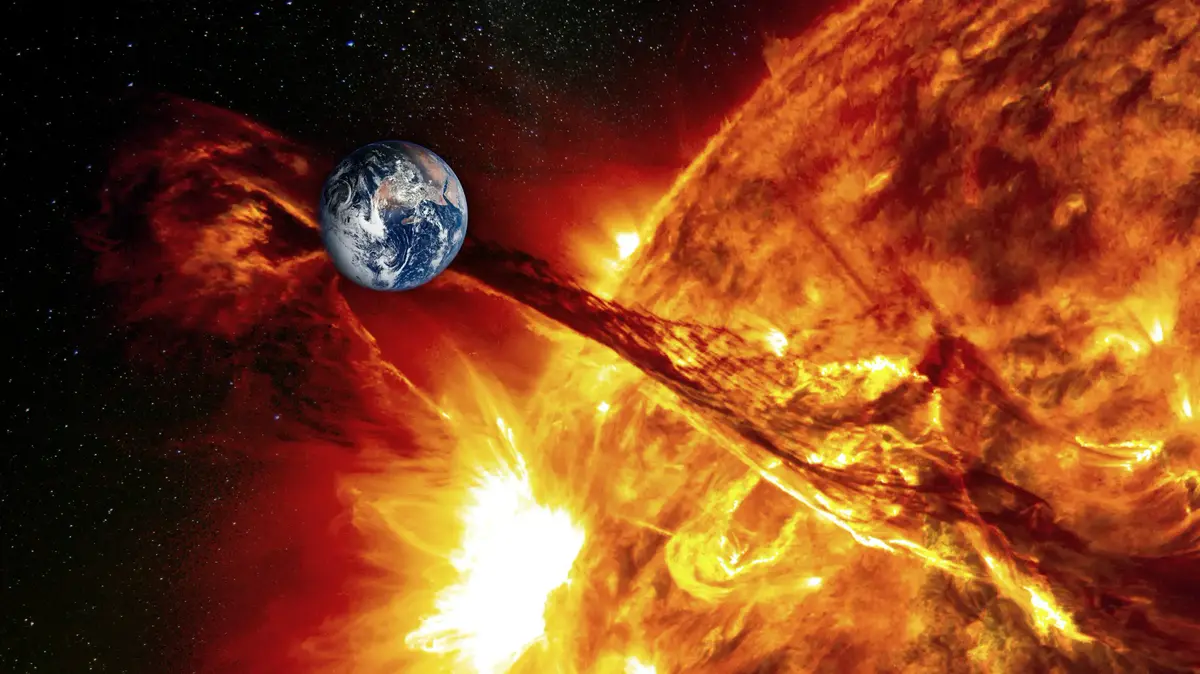The English writer Aldous Huxley, during an interview for the British magazine 'Picture Post' in London, in 1948.Elizabeth Chat (Getty Images)
In 1958, Aldous Huxley, tormented by the way in which what he had narrated in Brave New
World
, his 1931 classic about a society completely given over to a cruel hedonism that cares nothing about living under totalitarianism, was coming true. , he published a series of essays under the title
Revisiting a Brave New World
.
When I wrote
Brave New World,
in 1931, he was convinced that we still had a long time before what he predicted would come to pass, and it is not so,” he wrote.
His predictions ranged from servitude —“made acceptable by regular doses of chemically induced well-being”— to the loss of individual freedom in favor of a formless collectivity —and “a fully organized society”—, accelerated by “a gradual dehumanization and no solution."
In this regard, he considered that our duty, as human beings, was to try to fight against it.
More information
Nine disturbing things that were already in Orwell's '1984' and now you have in your house
But is that dehumanization possible?
Speculative fiction, since Huxley, has tried to make it clear that it is not.
There is John the Savage, the character from
Brave New World
who exercises, from his animal humanism, a freedom that the rest of the sophisticated inhabitants of the World State do not enjoy.
The citizens are happy, John considers, but their happiness is artificial, "soulless."
The desperate search for something alive to care for in
Do Androids Dream of Electric Sheep?
, by Philip K. Dick, is also an attempt to avoid a narcotic present in which nothing seems to make sense and the human being is one more cog in a dying gear.
The lack of empathy in astronauts who land on Mars that Ray Bradbury devised for
Martian Chronicles
it contrasts with the illusion of the settlers and represents the technology that is
disheartening
us .
It would be said that Katixa Agirre (Vitoria, 41 years old) joins this commitment to the impossibility of dehumanization in her latest novel,
De nuevo centauro
(Tránsito).
The protagonist, Paula Pagaldai, is a writer from the near future who travels to Paris to document Mary Wollstonecraft's passage through the city.
She is working on bringing back Mary Shelley's mother in a virtual module that will allow anyone to experience exactly the world she lived in.
Because in the society of the novel there is neither time nor space.
Not even reality.
Oftal glasses and a curious “
sentient” suit
they allow you to be another person and feel like one at any time.
Traveling has stopped, hotels have closed.
The world is a mirage and dreams come true.
And, despite this, there are those who flee.
He rebels by touching himself again, being, without further ado, in the world.
Scarlett Johansson, as a cyborg, in an image from the movie 'Ghost in the shell' (2017).
“I think we live that tension of loving Instagram filters and at the same time wanting to touch the body that can hide behind.
And no matter how much digital simulation improves, no matter how much we manage to deceive our perception, the need of the body, its unquestionable categoricalness, will always come back.
If I feel alone, I want to feel the skin of another person next to mine, a screen is useless”, says Agirre.
“There is a whole trans and post-humanist current that advocates leaving the body behind for good and becoming a digital consciousness, wandering the universe for all eternity.
It is a fantasy in my opinion very sad.
Why do I want immortality without a body with which to enjoy it?
What's more, why do I want life if there isn't going to be an end point that gives it meaning?”, she adds.
For Jorge Carrión (Tarragona, 46 years old), author of the utopian, and at the same time dystopian,
Membrana
(Galaxia Gutenberg), "there are no more or less human times."
“Are warriors less human than shamans?
Is a couple that breeds naturally more humane than one that breeds through in vitro?
Is Spain more human than Qatar?
Human beings have always been technological.
Many animals, like birds or crocodiles, use tools.
That doesn't make them any less animal.
It doesn't discourage them.
Humanism, as a critical and informed strategy to think about the world, can only continue in force if it forgets about absurd fictions such as that technology distances us from some kind of essence.
From the bonfires and rock art, as Werner Herzog reminds us, we are technohumans ”, he considers.
In
Membrana
it happens that the human being no longer exists.
And, as readers, we visit a museum created by algorithms —a plural entity, the Grandmothers—, who idolize what has been lost and try to rebuild it, uselessly and melancholically.
They have lost us and with that they have also lost themselves.
The writer was interested in "working on the idea that artificial intelligence can be more human than us."
“I think we are moving from anthropocentrism to biocentrism.
This is how the management of the pandemic can be read: as a statistical reading of collective life ”, he says.
However, “mobile phones have made us narcissistic.
We are the most narcissistic generation in the history of humanity.”
That is, in some sense we are refusing to accept this loss of the center.
”
membrane
He talks above all about that, which is a paradox: how to create a narrative that displaces the human from the center, although of course I am at its center”.
In his latest collection of stories,
Exhalation
(Sixth Floor), Ted Chiang (New York, 55 years old), insists that it is impossible to escape what makes us human.
His texts are almost philosophical parables sent from a future in which human beings are more aware than ever of what they could lose if they stopped being so, in the sense that Huxley, Dick, Bradbury, the Margaret Atwood of
Finally, appeal to.
the heart
(Salamander) and any writer of speculative fiction who fears the idea of change that technology imposes.
Because, in the end, that's what it's all about.
“Science fiction is a powerful genre because it explores the inevitability of change,” Chiang says, and at the extreme of that change—dehumanization, now empowered by virtualization—imposes a return to essentials.
To what is still there when the screen turns off.
Subscribe to continue reading
Read without limits
Keep reading
I'm already a subscriber

/cloudfront-eu-central-1.images.arcpublishing.com/prisa/JPVPKXZSO5EW3MKM5GCOT2GX4E.jpg)



/cloudfront-eu-central-1.images.arcpublishing.com/prisa/HEDL2EH5ZFDPDOL7RYY65YOJQA.jpg)









